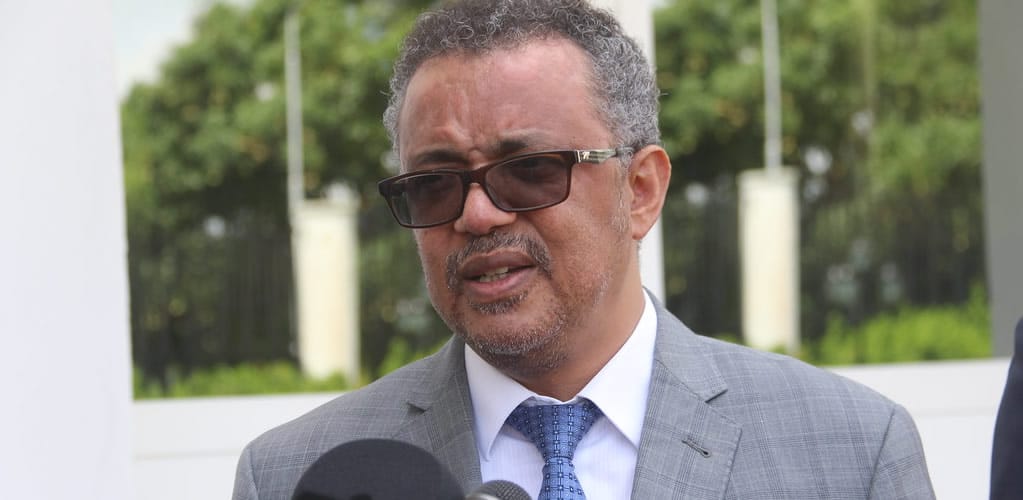End of global COVID-19 pandemic in sight — WHO chief
According to the head of the World Health Organization, the world has never been in a better position to end the COVID-19 pandemic but now is not the time to stop the fight against the virus that already killed 6 million people worldwide.

According to the head of the World Health Organization, the world has never been in a better position to end the COVID-19 pandemic but now is not the time to stop the fight against the virus that already killed 15 million people worldwide.
First published: Sept 2022.

Unsplash/Daniel Schludi
Worst time to stop running
In his weekly press conference, Dr Tedros Adhanom Ghebreyesus, Director-General of the World Health Organization (WHO), explained:
“Last week, the number of weekly reported deaths from COVID-19 (globally) was the lowest since March 2020.
“We have never been in a better position to end the pandemic. We are not there yet, but the end is in sight.
“A marathon runner does not stop when the finish line comes into view, she runs harder, with all the energy she has left. So must we.
“We can see the finish line, we are in a winning position, but now is the worst time to stop running. Now is the time to run harder, and make sure we cross the line and reap the rewards of all our hard work.
“(Governments) should still plan for surges of cases, and make sure you have the supplies, equipment, and health workers you will need.
“Since New Year’s Eve in 2019, and every day since then, WHO has worked without rest to warn the world, and to give people everywhere the tools they need to stay safe, save lives, and keep societies functioning.
“We have helped countries to build oxygen plants and treatment centres. We have shipped millions of masks, gowns, tests, vaccines, and more to countries that need them, all over the world.
“We have advised governments on how to find the right mix of public health measures, and with our partners in Covax, we have delivered more than 1.7 billion doses of vaccine around the world. Low-income countries have relied on us for three-quarters of their vaccine doses.”
Urgent call
The WHO also released six short policy briefs outlining the key actions that all governments must take now to “finish the race” – a summary, based on the evidence and experience of the last 32 months, that shows what works best to save lives, protect health systems, and avoid social and economic disruption.
“An urgent call for governments to take a hard look at their policies and strengthen them for COVID-19 and future pathogens with pandemic potential”, Tedros explained.
The briefs include recommendations regarding vaccination of most at-risk groups, continued testing and sequencing of the SARS-CoV-2 virus, and integrating effective treatment for COVID-19 into primary healthcare systems. They also urge authorities to have plans for future surges, including the securing of supplies, equipment, and extra health workers.
The briefs finally contain communications advice, including training health workers to identify and address misinformation, as well as creating high-quality informative materials.
Tedros added that the WHO will continue to fight against the spread of COVID until the pandemic is “truly over”.
“We can end this pandemic together, but only if all countries, manufacturers, communities and individuals step up and seize this opportunity”, he said.
Possible future scenarios
Dr Maria Van Kerkhove, Infectious Disease Epidemiologist and COVID-19 Technical Lead at the WHO, insisted that the virus is still “intensely circulating” around the world and that the agency believes that case numbers being reported are an underestimate.
“We expect that there are going to be future waves of infection, potentially at different time points throughout the world caused by different subvariants of Omicron or even different variants of concern.”
The more the virus circulates, the more opportunities it has to mutate, she added.
“We expect there to be future waves of infection, potentially at different time points throughout the world, caused by different sub-variants of Omicron or different variants of concern, but those future waves of infection do not need to translate into future waves of death, because we have tools that can prevent infections, can prevent transmissions – critically the use of vaccines, early use of anti-virals can prevent people from developing severe disease and dying.”

GOING FURTHER:

|

|

|
— AUTHORS —

|
▫ PMP News reporting |
Sources
- Text: This piece was first published in PMP Magazine on 14 September 2022.
- Cover: Flickr/MONUSCO. - Tedros Adhanom Ghebreyesus. (Licensed under a Creative Commons Attribution-ShareAlike 4.0 International License.)







[Read our Comments Guidelines]